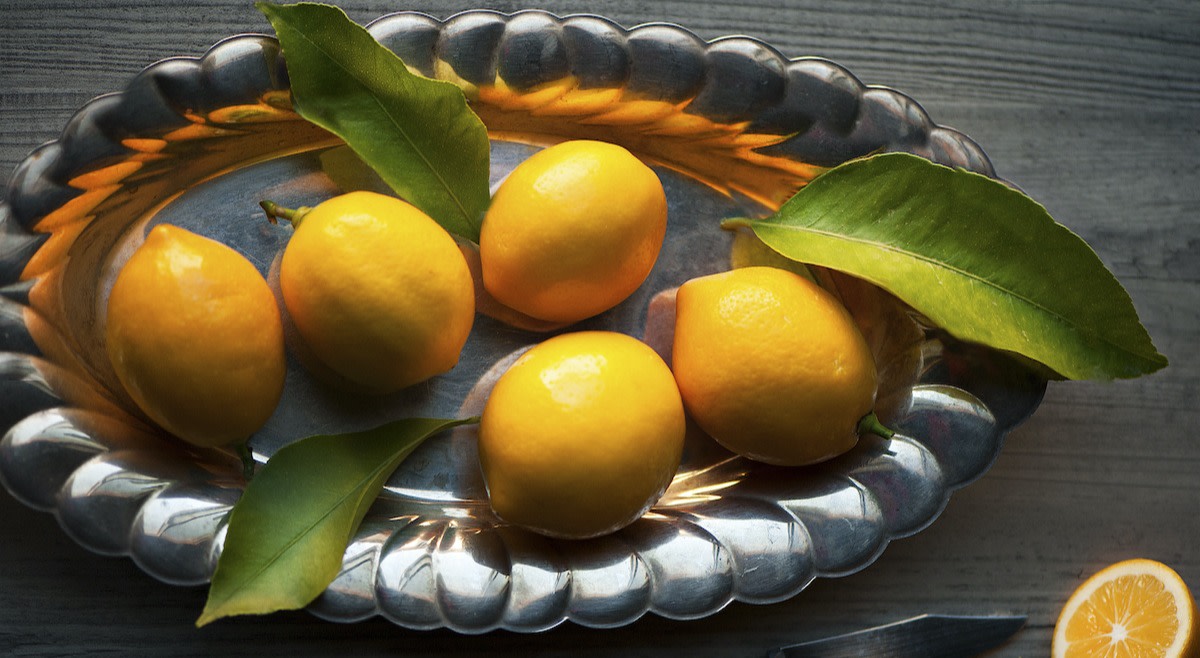Meyer Lemon vs. Regular Lemon: What’s the Difference?
Written by MasterClass
Last updated: Nov 15, 2021 • 3 min read
Chefs and home cooks alike praise Meyer lemons for their thin, fragrant skin and sweet flesh. Learn how this citrus differs from regular lemons, and the best ways to enjoy the flavor.
Learn From the Best
What Are Meyer Lemons?
The Meyer lemon (Citrus × meyeri) is a citrus fruit that originated in China; Frank Meyer first introduced the fruit to the United States 1908. In 1975, the University of California released the improved Meyer lemon: a disease- and insect-resistant cross between a “regular lemon” (such as a Eureka lemon or Lisbon lemon) and a mandarin orange. Most Meyer lemons sold in the U.S. today are this hybrid variety.
Like other citrus varieties, the Meyer lemon tree is best suited to USDA Hardiness Zones eight through eleven. Meyer lemon trees thrive in southern states like Florida, where they enjoy the warm temperatures and full sun.
What Are the Differences Between a Meyer Lemon and a Regular Lemon?
Meyer lemons differ from other lemons in appearance, flavor, and seasonality. The fact that a Meyer lemon is a cross between a lemon and a mandarin (not a type of lemon) makes perfect sense given its unique characteristics.
- Appearance: Regular lemons have a knobby, yellow skin, a thick layer of white pith, and bright yellow inner flesh. Meyer lemons are rounder, smoother, and more orange in color than standard lemons. Their thin skin ranges from dark yellow to rich egg yolk, and their inner skin is a deep yellow. Additionally, Meyer lemons have barely any pith.
- Flavor: Regular lemons are incredibly acidic and sour. Since Meyer lemon is a hybrid, it has a mellow, sweet flavor. Its lack of bitter pith means that you can enjoy Meyer lemon peel in recipes that call for whole lemons.
- Price and availability: Unlike regular lemons, which are available year-round, Meyer lemons are in season from early winter through early spring. They’re also more expensive and harder to find than regular lemons, partly due to their thin skins, which make Meyer lemons more difficult to ship.
3 Meyer Lemon Substitutes
Don’t worry if you can’t find Meyer lemons at the farmers’ market or grocery store. There are a number of substitutions you can make, depending on the situation.
- 1. Other mild, sweet citrus fruits: For recipes that call for actual Meyer lemon segments, you’re probably best off turning to mild citrus fruits like orange, tangerine, or mandarin.
- 2. Regular lemon: In glazes, sauces, and vinaigrettes that require Meyer lemon juice or zest, you can substitute regular lemon juice and zest. Keep in mind that regular lemon has a much stronger flavor. This means you’ll want to start with a smaller amount of regular lemon juice or zest and adjust up as you go.
- 3. A citrusy mix: Another option for situations that require Meyer lemon juice or zest is to combine the tart component of a regular lemon with a sweeter citrus fruit, like a mandarin or orange.
5 Ways to Use Meyer Lemons
Now that you know a bit more about its flavor profile and qualities, you can use Meyer lemons in a wide range of recipes.
- 1. Infused olive oil: Try gently warming Meyer lemon zest in olive oil to transfer its flavor to the oil. You can then drizzle the citrus-infused oil on salads or use it as a dip for crusty bread.
- 2. Lemon curd: Use Meyer lemons instead of regular lemons in your next batch of lemon curd. Meyer lemon curd will add a level of sophistication to your next batch of lemon bars.
- 3. Lemon salt: Grind Meyer lemon peel with sea salt to create a versatile lemon salt you can sprinkle on vegetables, chicken, and more.
- 4. Marmalade: Hold onto Meyer lemons’ flavor long after their season has passed by cooking them into a marmalade that will keep for months.
- 5. Preserved lemons: Meyer lemons may not be available year-round, but salt-preserved lemons will keep in your fridge until next season and are an essential ingredient in North African cuisine.
Want to Learn More About Cooking?
Become a better chef with the MasterClass Annual Membership. Gain access to exclusive video lessons taught by the world’s best, including Gordon Ramsay, Gabriela Cámara, Chef Thomas Keller, Dominique Ansel, Yotam Ottolenghi, Alice Waters, and more.
